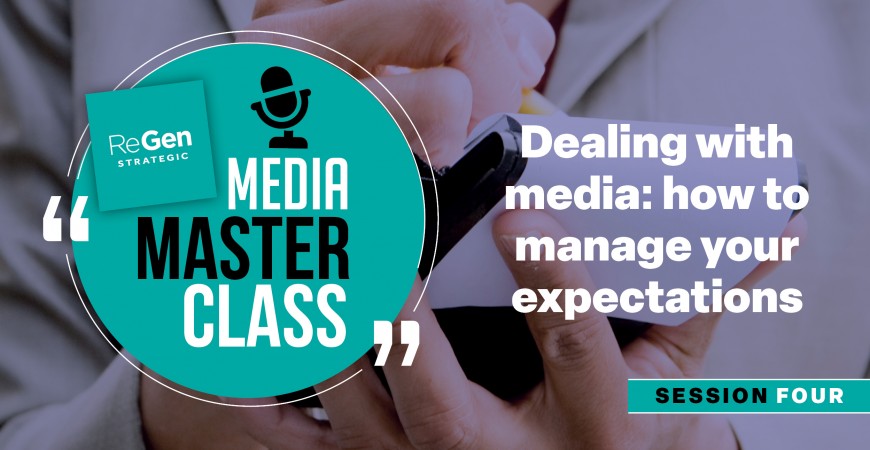Dealing with the media can be a bit of a roller coaster: it’s exciting when a journalist wants to cover your story, but it can be disappointing if the story is not what you anticipated or it gets dropped from the rundown.
When pitching stories to media, it’s important to have realistic expectations about just how newsworthy the story is, and how interested a news outlet is likely to be. Not every story is going to end up on the front page of the paper and headline the nightly news bulletins, which can be disappointing when you feel passionate about a particular issue that’s important to you.
Sometimes even really good stories don’t get the coverage they deserve, and this can be for a variety of reasons. Sometimes it can simply be that the Chief of Staff on roster that day isn’t interested in the topic you’re trying to pitch, sometimes your story was in the line up but got bumped by a late breaking story, and sometimes the news outlets just don’t have the resources to cover it.
While there are certainly many media tips you can use to increase the chances of maximum coverage, including having a strong news angle, timing your story well and having a great case study, it’s also important to manage your expectations.
Here are a few of the media tips ReGen Strategic gives to media relations clients and media training participants:
You cannot control the media
Before engaging with the media, it’s important to understand the role of the media. Firstly, the media is not marketing. You are not paying them to run your story and it’s not their job to make you or your company look good. Their job is to report the facts to their audience.
So, it’s important to concentrate on the things you can control including the timing of your story, your messaging, how you brief a journalist and what you say during an interview.
But, once your media release is sent, and your interview is done, how the media chooses to write the story is largely beyond your control. While this may be a little unnerving for some clients, the upside of a positive media story is that audience reach is maximised, enabling your message to resonate with a broader demographic. On top of this, an objectively written story carries credibility with audiences, enhancing your reputation.
Be flexible
Understand that journalists’ plans may change without any notice, so be prepared to change set interview times and places if possible. Live radio is particularly fluid, so try to have some flexibility in your availability. Having an established media protocol in place before engaging with media can make this easier to achieve. Media conferences also need to be set at a time which is going to be convenient for media to attend – which is not 5pm on a Friday!
You may not be the focus of the story
If a journalist has contacted you to ask you to comment on a story, chances are you may be one of several ‘talents’ in the story. This may mean you get as little as 10 seconds of air time (so make sure you have key messages ready) or a single quote in an article. However, it’s always better to be part of the conversation, even if it’s only a small part.
Understand the story and your place in it
The more information you can gather about the journalist’s angle in a story, and how many other talents may be quoted, the better. Having a media relations specialist act as the media contact can help with this – our media team maintains networks with journalists across all platforms, which makes it easier to find out this information. This will allow you to manage your expectations accordingly.
You will be edited
While you may do an interview that lasts for 10 minutes or more, you could end up only getting a 20 second ‘grab’ in a radio story and under 10 seconds in a TV story, or one quote in a newspaper. (So make what you say count and keep your key messages in mind). ReGen’s media training program is a great opportunity to practise giving answers that fit the ‘20-second grab’ format.
You may be misquoted
Journalists don’t generally intend to go around misquoting people or taking them totally out of context. If this happens to you, it’s fine to contact the journalist and ask for a correction. Having a media relations specialist with a connection to the journalist do this on your behalf will increase your chances of getting a correction implemented. However, if you’ve been quoted accurately, but you just don’t like what you said, then you don’t have grounds to complain. (Maybe work on your key messages in the future instead or sign up for media training if you haven’t received any yet).
These media tips, and others, are covered in ReGen Strategic’s comprehensive media training courses. Contact us to book in a session before your next media appearance.
 ReGen Strategic
ReGen Strategic